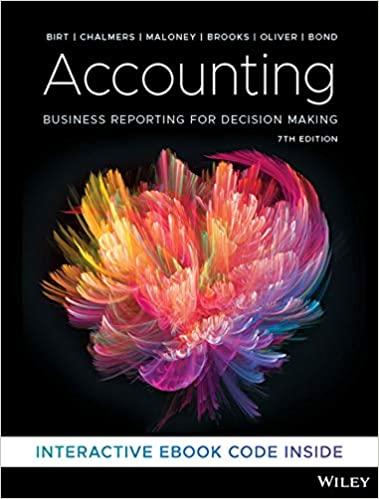CEO remuneration packages have courted much controversy. These packages are normally divided into a base salary and
Question:
CEO remuneration packages have courted much controversy. These packages are normally divided into a base salary and incentive payments. The incentive payments are usually aligned with the financial performance of the company, and are made up of bonuses and share options. However, critics believe that many managers are only concerned with maximising their own wealth and so are working to increase the short-term financial performance, rather than the long-term growth and sustainability of the company.
Critics say that incentive payments deplete the value of the company and sacrifice cash, that the link between payments and performance is tenuous, and that it is easy to compensate good performance but boards falter when it comes to dealing with poor performance. However, defenders say that a few big incentive payments to some poor performers are overshadowing the deserved payments to hard-working, high-performing managers.
Required
(a) Appraise the need for an individual to earn millions of dollars each year.
(b) A number of high-profile companies came under attack for excessive CEO payment. Major banks fell into that category. The CEO of ANZ, for instance, received $4.26 million in 2017. His fixed remuneration was $2.1 million and his variable remuneration was $2.16 million, which included a cash incentive of $1 million. In addition, the board allowed non-monetary benefits to cover his ‘car parking and taxation services’. Profit attributable to shareholders was up 12 per cent to $6406 million for 2017 and the total dividends paid during the year dropped by 7.8 per cent even though both the interim and final dividends paid were constant at 80 cents (ANZ 2017). Discuss whether you feel the CEO of ANZ earned his pay during 2017. Comment on whether or not a company should pay its employees’ personal expenses such as car parking, life insurance and tax services.
(c) Boards and shareholders (at the AGM) decide on CEO pay. Speculate on why they agree to pay such large sums.
(d) When companies don’t do well, hypothesise why their CEOs don’t lose their jobs.
(e) Most CEOs are paid a combination of a base salary plus share bonuses and options. What is the reason that boards like to have their CEOs own shares in the company?
Step by Step Answer:

Accounting Business Reporting For Decision Making
ISBN: 9780730369325
7th Edition
Authors: Jacqueline Birt, Keryn Chalmers, Suzanne Maloney, Albie Brooks, Judy Oliver, David Bond





